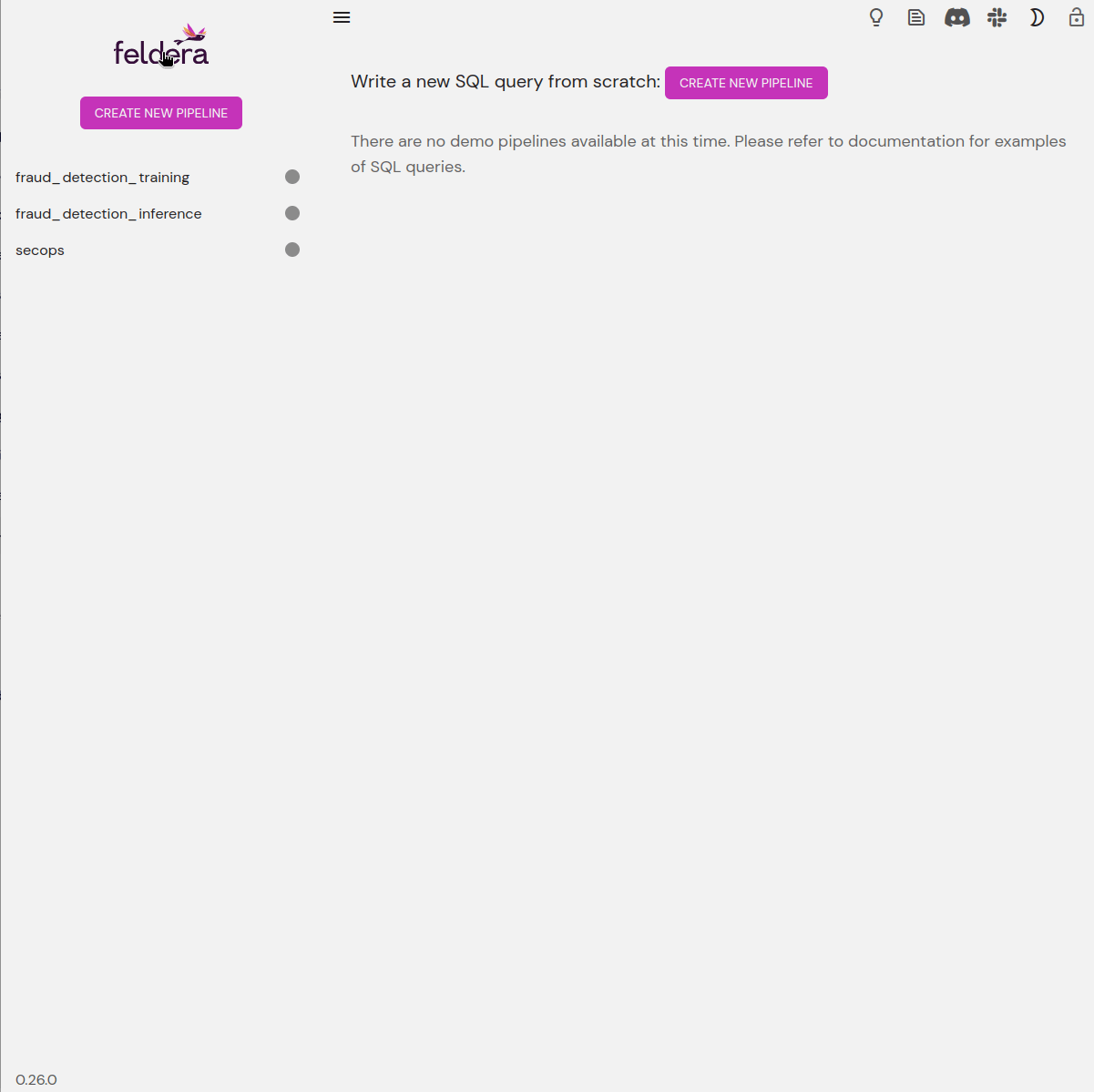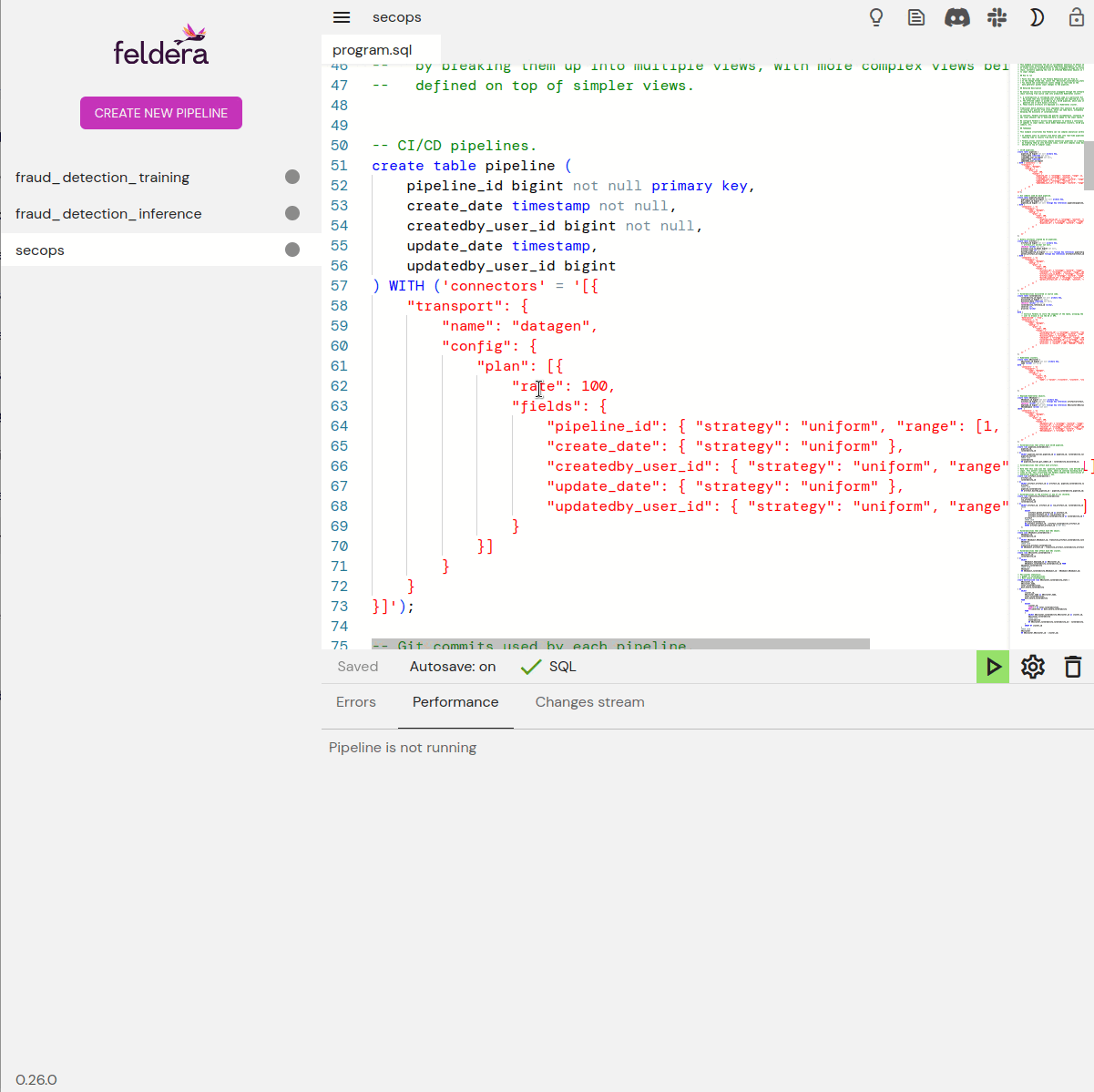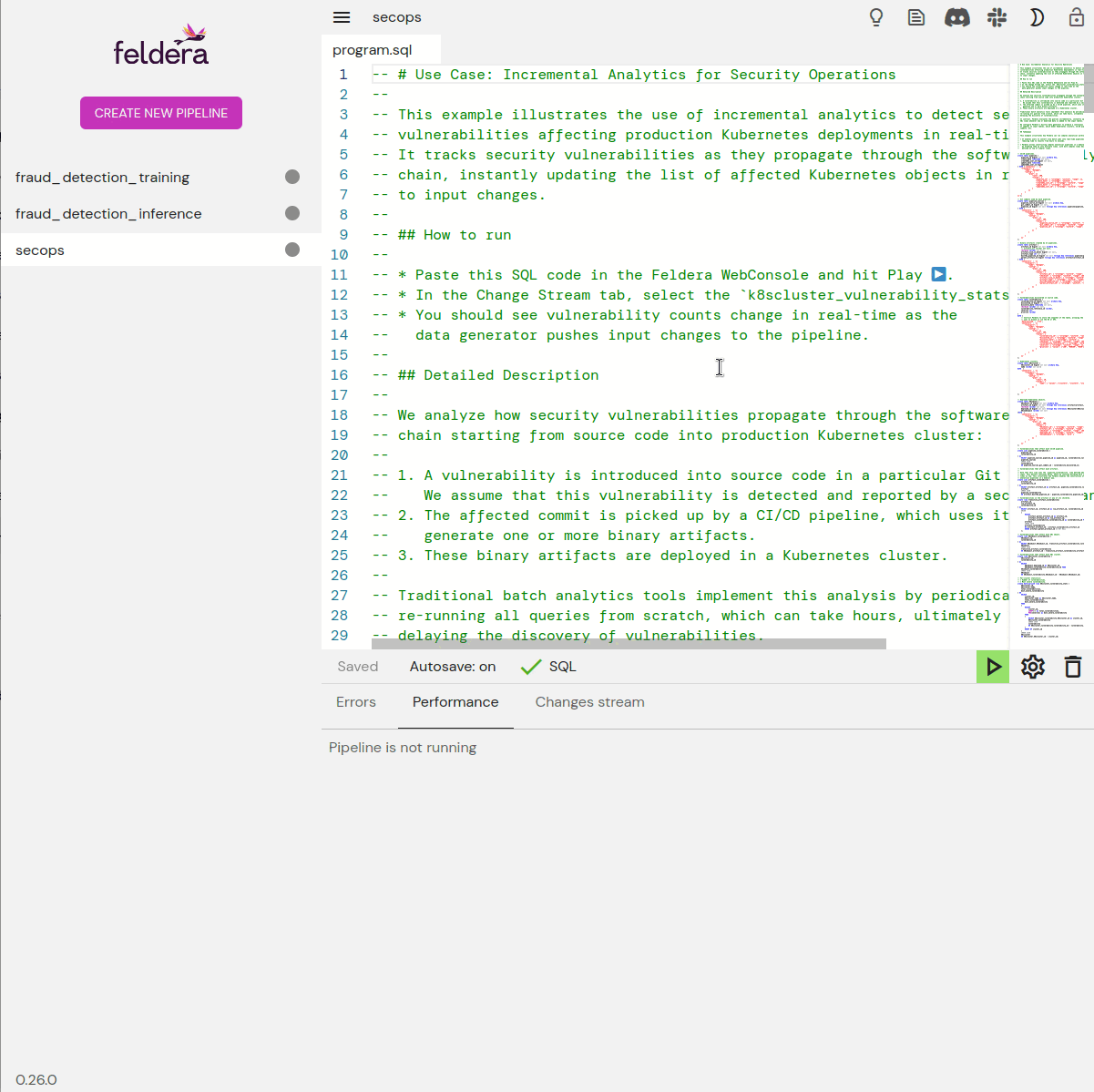Concepts
Feldera processes queries and produces output continuously. When input arrives, Feldera recomputes query results and sends the changes to outputs. Feldera queries are written in SQL, so users who have an existing investment in analyzing data at rest with a SQL database can use much of the same code to analyze data continuously with Feldera.
Incremental processing
Feldera is fundamentally incremental in how it handles input, computation, and output.
For input, being incremental means that Feldera processes data as it arrives. Feldera does not require all of the data to be on hand before beginning computation.
For computation, being incremental means that when new data arrives, Feldera does a minimal amount of work to update query results, rather than by fully recomputing them. This is much faster than fully recomputing queries from scratch.
For output, being incremental means that Feldera outputs query results as sets of changes from the previous output. This improves performance and reduces output size.
Programs
Feldera programs are written in SQL. CREATE TABLE statements
specify the format of data, and CREATE VIEW statements specify
transformations and computations. Views may draw data from tables and
from other views. Feldera provides powerful SQL analysis features,
including time-series operators.

Connectors
Feldera tables and views can work with data using HTTPS, Kafka, Debezium, Snowflake, Delta Lake, S3, and other protocols. New connectors can easily be written to interface with whatever data sources and sinks a user would find most convenient. For testing, Feldera even provides an input connector that generates data on the fly. Data connections are specified right in SQL source.

Pipelines
A running program in Feldera continuously pulls data from sources, runs it through a computation, and pushes the results to sinks. The user can start, stop, manage, and monitor pipelines.

Foundation
Feldera is the pioneering implementation of a new theory that unifies databases, streaming computation, and incremental view maintenance, written by the inventors of that theory. See our publications for all the details.
Feldera code is available on Github using an MIT open-source license. It consists of a Rust runtime and a SQL compiler.